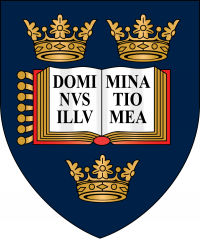Back in October 2022, I began my PhD project investigating Lloyd’s Register Surveyors in China between 1869-1918, funded by the Lloyd’s Register Foundation Heritage & Education Centre (LRFHEC). This story details my research to date, as well as a few interesting anecdotes that I’d like to share.
The Lloyd’s Register ship and engineer surveyors of the period were veteran and expert ship surveyors and marine engineers, as they still are today. They worked to reduce maritime risk and oversaw ship construction, if the vessel was built to Lloyd’s Register (LR) Rules, and repairs and maintenance of all LR classed ships. They provided appropriate and effective solutions and advice to the shipowners, and in-depth survey reports to the Society’s headquarters in London.
As China was forcefully “opened up” to the Imperial West following the Opium Wars, and international concerns moved to the newly established Treaty Ports and the Crown Colony of Hong Kong, the first LR surveyor was posted to Shanghai in 1869. From then on, LR surveyors in China would work with both international and Chinese companies and people in the shipbuilding and shipping industry, far from home at the periphery of Empire.
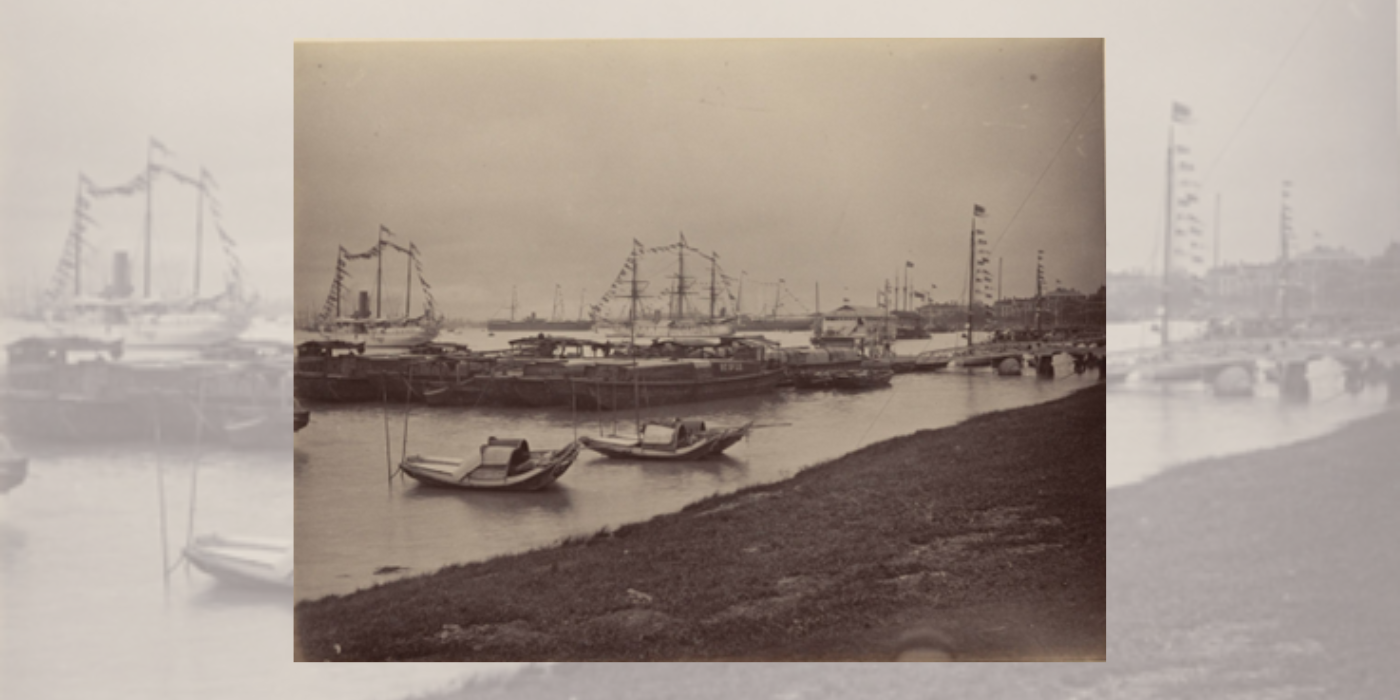
Shipping in the River at Shanghai
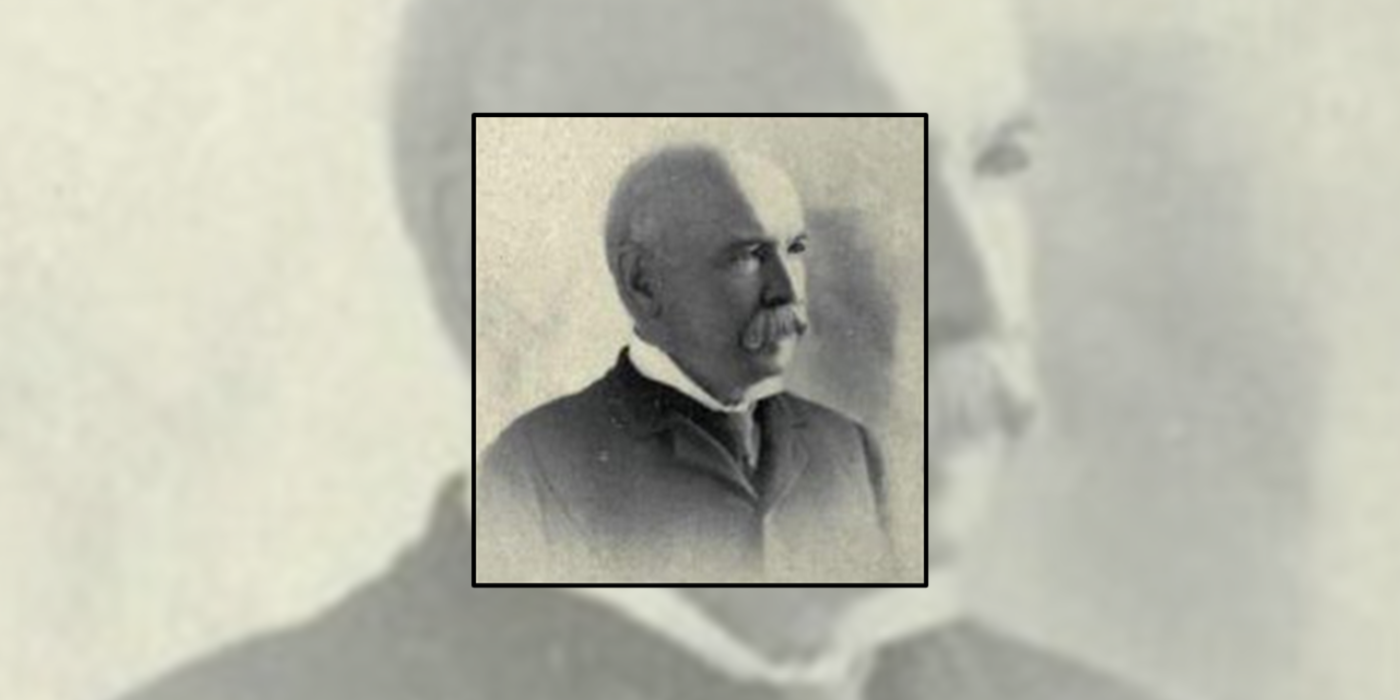
Joseph John Tucker
See Personnel of the Senate and House of Commons: Eighth Parliament of Canada: Portraits and Biographies of the Members, Montreal : J. Lovell & son, 1898. 194.

Shipping in the River at Shanghai

Joseph John Tucker
See Personnel of the Senate and House of Commons: Eighth Parliament of Canada: Portraits and Biographies of the Members, Montreal : J. Lovell & son, 1898. 194.
So far, I have completed three chapters (around 30,000 words) of the PhD. The first was a literature review – a sweep through what other historians have written about the period and topic. While there is good scholarship on Britain in China, there is very little written on the role of the LR. Indeed, outside of some historians utilising LR as a source for their studies, the Society has not seen much academic study.
One small caveat I’d like to mention here is Nigel Watson’s fantastic 2010 book, Lloyd’s Register: 250 Years of Service. The LR surveyors who served in China during this period then, in a sense, are shrouded in the obscurity of the past. Hopefully, I can do their stories justice.
To do so, I started off by looking at their careers and their responsibilities as surveyors to the Society in China. One thing that stood out here was how fluid the world had become by this point, and how enterprising individuals like these surveyors could take advantage of the opportunities that came with this fluidity. Let me give you one example:
On the 27 November 1943, John Lambert, R.N.R., R.D., and ex-surveyor for Lloyd’s Register at Hong Kong, died in Pasadena, California in his early 80s. The retired marine engineer had been living in the picturesque beachside town of La Jolla, San Diego – a far cry from his roots in the industrial North-East of England.
Born in Sunderland in 1862, the son of a medical doctor, the 1881 UK census shows us that he was set to follow in his father’s footsteps at the age of 18. 1 A lot can happen in ten years however, as at some point in the next decade he “mapped out for himself a career as an engineer”, and by the 1891 census he was already a Chief Engineer. 2
From this point onwards Lambert was immersed in maritime networks and lived and visited places as varied as Hong Kong, New York, and Constantinople.3 Being a marine engineer could certainly help you get around!
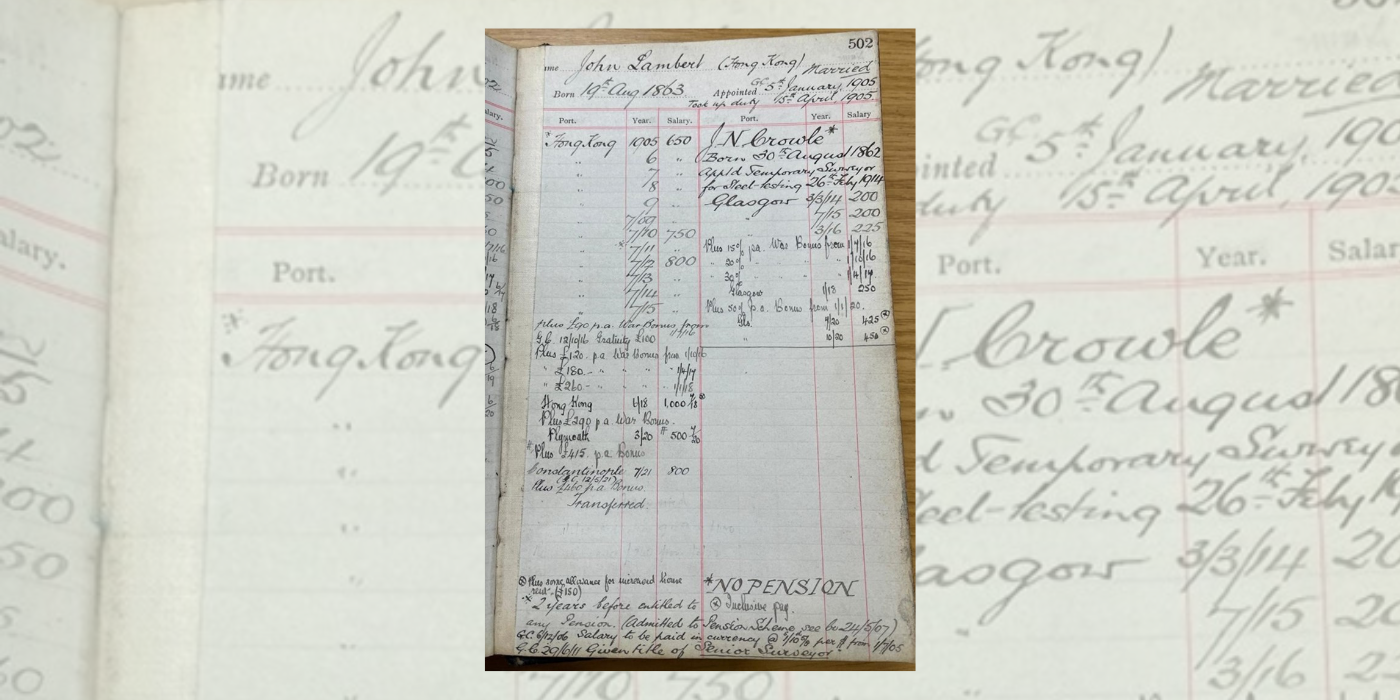
John Lambert’s Staff Bible
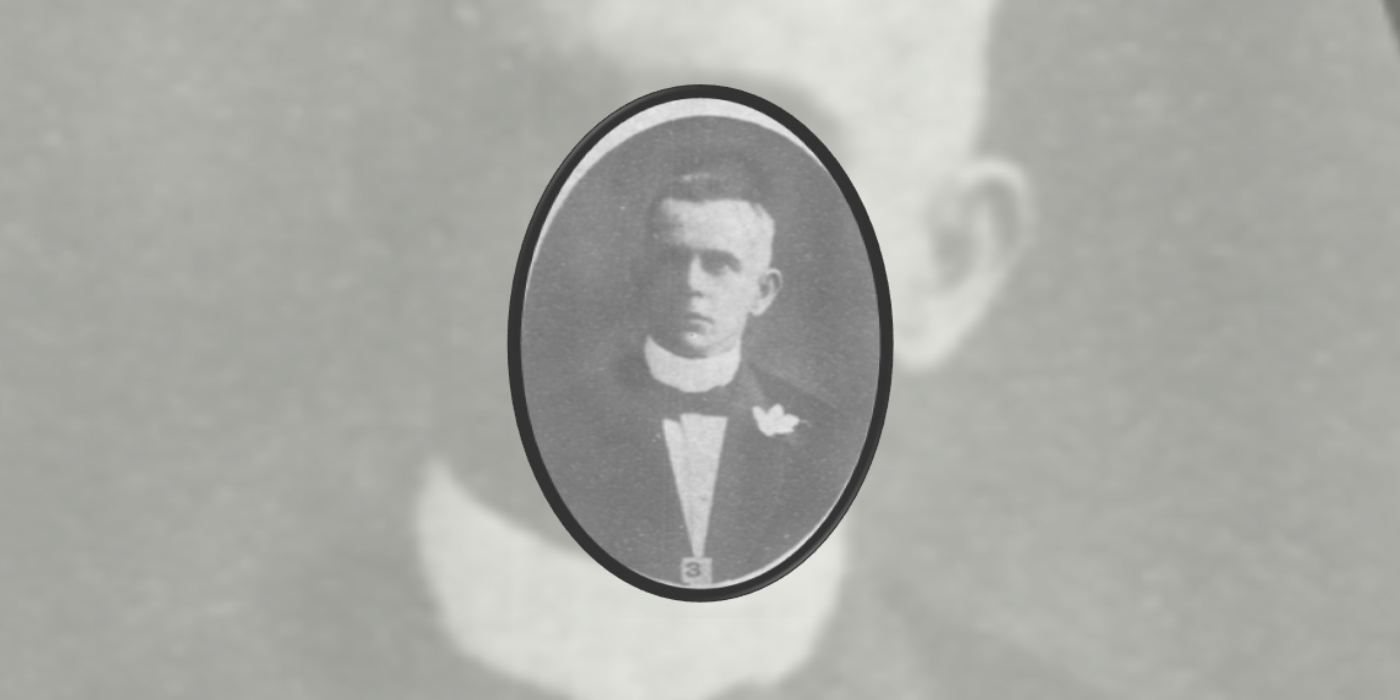
John Lambert
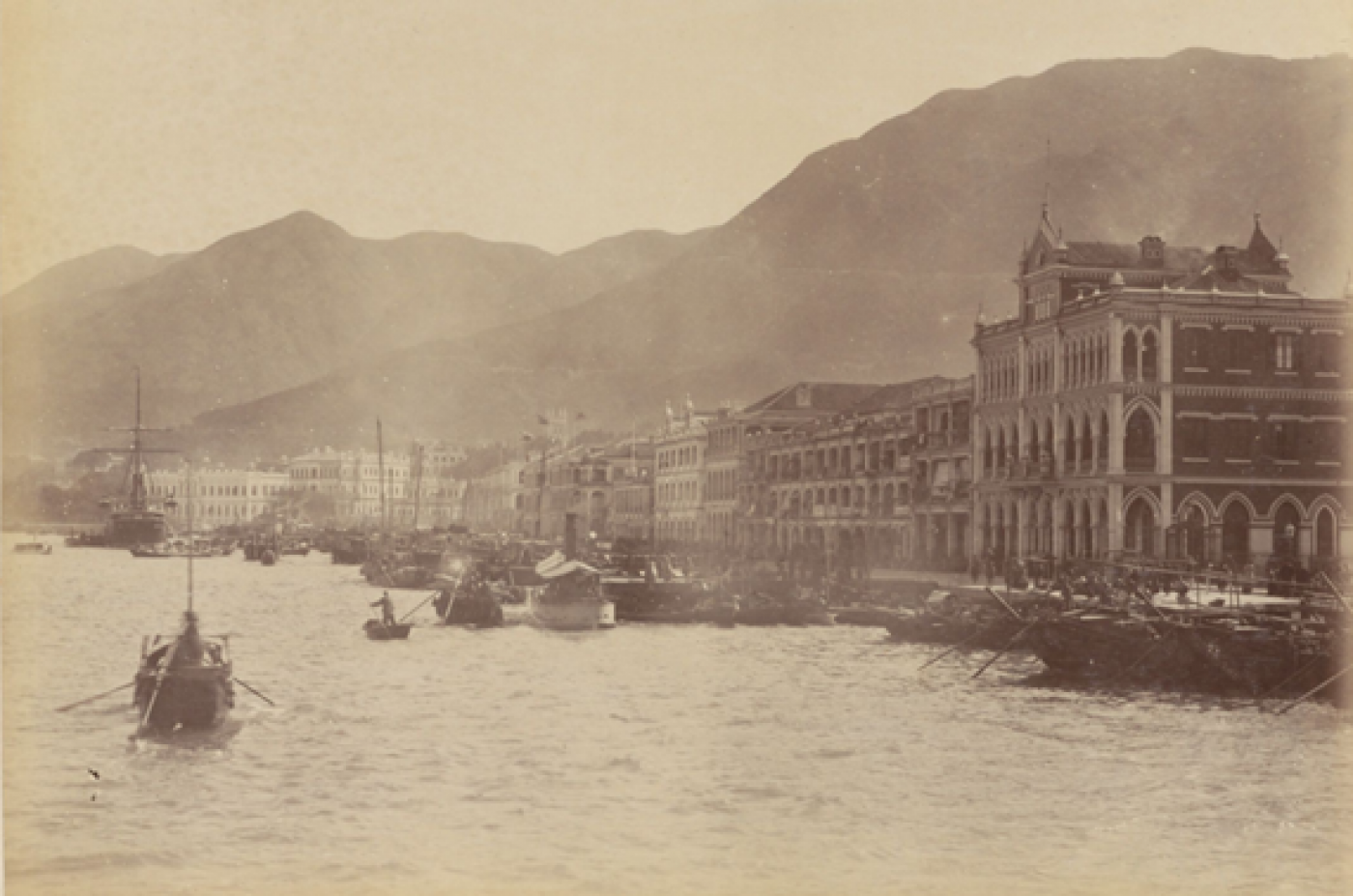
Praya Central

John Lambert’s Staff Bible

John Lambert

Praya Central
The last topic I have written about was how the surveyors spent their free time on the coast of China. Leaving home and travelling across the world could often be as monotonous as exciting, and leaving behind family, friends and comfort could be tough. As such, the Imperial expat community brought many sporting and hobby activities with them, and the surveyors were no different. And of course, networking was always key.
Hobby groups and clubs could be where you could meet the person or persons who could open up the next door in your career. As such the surveyors were involved with a variety of activities, from long time Hong Kong resident turned LR surveyor Robert Cairns racing yachts in Hong Kong to Newman Mumford helping run the Colony’s “Odd Volumes Society”.4
No study of leisure in the British Empire though would be complete without people who “played the game”. The game, of course, was the much-venerated English game of cricket, and at least two of the surveyors, Mumford and Lambert, were players.
In fact Mumford and Lambert turned up in London in late 1908 at the Trocadero for the Lloyd’s Register Cricket Club’s annual dinner and meeting, despite at the time being posted in Constantinople and Hong Kong respectively. Perhaps they couldn’t bear to miss Secretary F.A. Mayne’s annual report, charmingly presented in the form of a “jingling rhyme”.5 Or maybe it was because of the opportunity to “cement their friendship” and take part in “an interchange of views” with a well-represented gathering of fellow surveyors, big hitters within the Society, and some rather influential “friends … of the Society”. Personally, I think it must have been Mr Mayne’s jingling rhyme. 6
Finally, my current focus is on the role and importance of family for the surveyors and British migrants like themselves on the China coast. As much as this blog has looked at the professional, and public lives of the surveyors, the project will now try to peel back the curtains on their private lives.
As the period progressed, the British presence in China increasingly took on an air of permanence and domesticity – the male dominated demographics shifted as families arrived and settled. Young couples were married, children were born, and in general significant effort was undertaken to make China a home. I’m excited to explore this final, yet crucial element of the surveyor’s experience in China and through it investigate the form in which the British colonial presence took and how it interacted with the Chinese community.
Footnotes
-
1
The National Archives, Kew (London), Census Returns of England and Wales, 1881, Class: RG11; Piece: 4997; Folio: 96; Page: 7; GSU roll: 1342202, access provided via Ancestry.co.uk: https://www.ancestry.co.uk/sharing/1287454?mark=740ad8622ae91c56342ea9a608e6d24788f23f75251c15628c487ffd4f25df96 [accessed 20/01/2023].
-
2
The National Archives, Kew (London), Census Returns of England and Wales, 1891, Class: RG12; Piece: 4139; Folio: 14; Page: 22; GSU roll: 6099249, access provided via Ancestry.co.uk, https://www.ancestry.co.uk/sharing/1287484?mark=2e34c801c29c60608d94c33070fa5c7b143c290e361ecb0d9a959a58bda2ddc2 [accessed 20/01/2023]; “Lloyd’s Surveyor: Successor to Mr. Mumford”, South China Morning Post, 14 March 1905.
-
3
The National Archives, Kew (London), ADM 240/29/40, John Lambert RNR Service Records, 1865-1939; LRFHEC, Woolwich (London), “Staff Bible” collection, Entry for John Lambert.
-
4
“Victoria Regatta. Twenty First Meeting”, Overland China Mail, 4 January 1877. “Hongkong Odd Volumes Society”, Overland China Mail, 26 March 1904.
-
5
“Lloyd’s Register. Cricket Club Reunion”, Lloyd’s List, 2 November 1908.
-
6
“Lloyd’s Register. Cricket Club Reunion”, Lloyd’s List, 2 November 1908.




